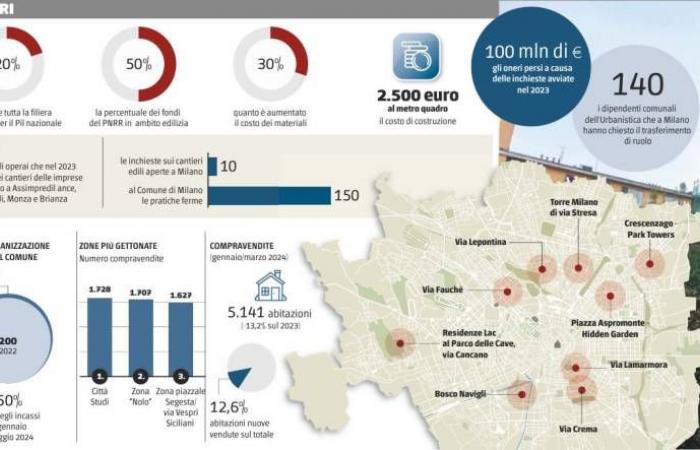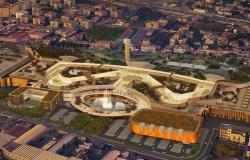What exactly is a backyard? It is around this apparently banal question that the conflict between the Public Prosecutor’s Office of Milan and the construction companies took place in the “pilot case” of the investigations into urban planning in the Lombard capital. The investigation into an alleged building abuse in Piazza Aspromonte dragged on all the way to the Supreme Court, and saw the defeat of the Prosecutor’s Office. But the investigations continued, on Piazza Aspromonte and on other projects, increasingly heating up the climate in the relations between the Prosecutor’s Office led by Marcello Viola and the city powers, those who – starting with the mayor Sala, the construction companies, the professionals – they experience the investigations as a frontal attack on the “Milan model”, a dramatic risk for the development of the metropolis.
«Delicate, complex, articulated and controversial»: this is how the definition of courtyard is defined in the sentences that found the Prosecutor’s Office wrong. But in the end they come to a clear conclusion: “It must be excluded that the area meets the requirements to be defined as a courtyard.” It is a key step, because the legitimacy of the construction site in Piazza Aspromonte – where instead of a twelve-metre building stands a seven-storey building for a total of twenty-seven meters – was possible for the Municipality because the area could not be defined as a courtyard , and therefore was not subject to strict rules on increasing volume. Exactly the opposite of what the tenants of the buildings in front claimed: “That was our courtyard, they created an eco-monster in it.”
The Prosecutor’s Office resolutely sided with the inhabitants of the area, indicted planners and municipal officials, and requested the seizure of the area. And it flopped. Seizure rejected repeatedly, first by the preliminary judge, twice by the Court of Review, and finally by the Supreme Court. Each time the sentences had to untangle themselves from a tangle of rules, and their very complexity demonstrates the difficulty of using criminal justice as an instrument for governing the development of a large city.
The crucial passage in this judicial matter is contained in the order with which on 30 June 2023 the Court of Review ruled that the Prosecutor’s Office was wrong for the second time in a row and Bluestone, the construction company in Piazza Aspromonte, was right. It is the order confirmed and made definitive in January by the Court of Cassation, at the request not only of the builders but also of the General Prosecutor’s Office, who disavowed their Milanese colleagues. There is talk of a municipality resolution that clarifies the criteria that make the interventions possible. According to the Prosecutor’s Office and its consultant, that decision is the result of “preordained bad faith on the part of municipal bodies and its officials”, a favor done to the lords of the brick and mortar sector. Instead, for the court, the Municipality’s provision “is not an initiative compliant with the interests of the builders” but rather “an attempt to offer the citizen and the bodies responsible for managing construction transparent parameters”. Two diametrically and culturally opposed ways, as we can see, of interpreting the rules and relationships between the Municipality and citizens. What for the Prosecutor’s Office is a sordid subterfuge, for the judges is an instrument of transparency.
In ruling the Prosecutor’s Office wrong, they analyze not only the behavior of the municipal bureaucracy but also of two leading figures of the Sala council, the councilors Pierfrancesco Maran (now MEP) and Giancarlo Tancredi: and they conclude that «the two authoritative confirmations of the regularity by of the political leaders of the administrative sector of interest (that of Maran even before the release) intervene on a building practice which has received the positive opinion of the Landscape Commission three times”.
The judges also recognize the good faith of the builders, Bluestone’s intervention “was not an act of daring piracy but had prospects of being realized in light of the reading that the provisions regarding the courtyard received from the relevant bodies”.






